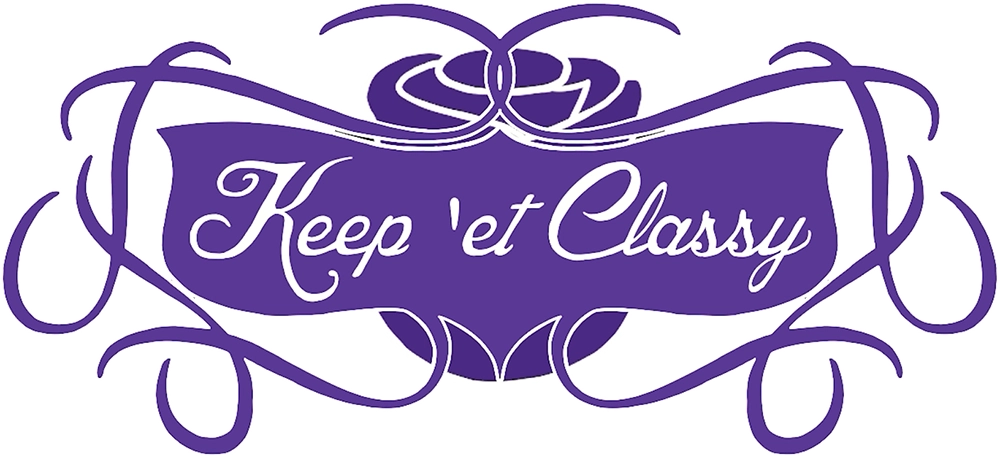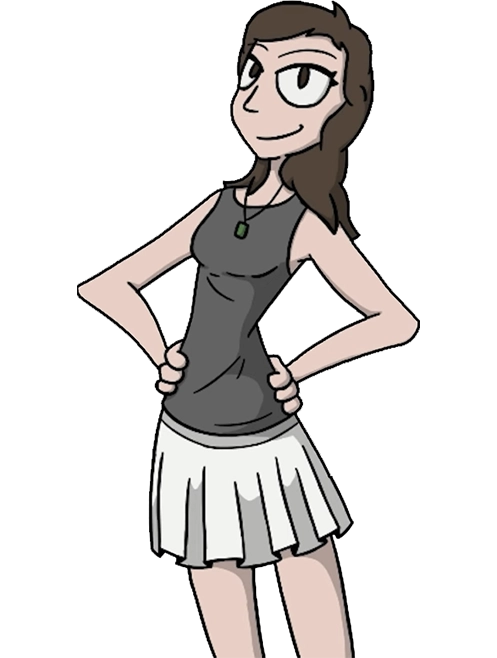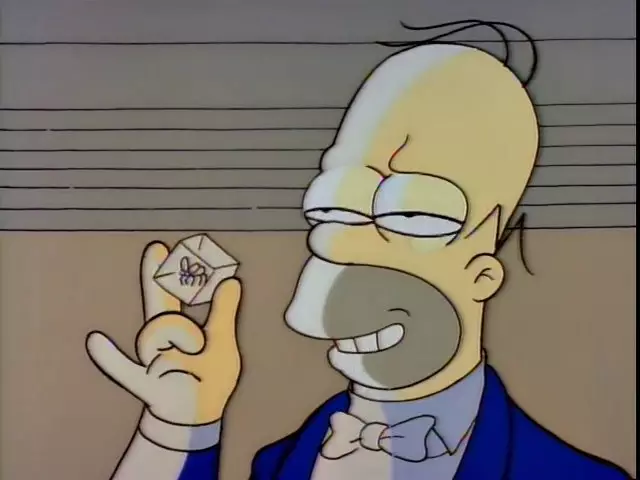My Recollection
QUEEN OF THE HARPIES . General Sherman wink. The ones at the bottom.
Drunks are like Pokemon, there’s a surprising number of different varieties, they all spend their down time curled up in balls, and they seem cute and funny until you look closely. Many of the character traits a sitcom uses for its comic folly are tragic when they exist for more than twenty-one minutes, and drunks are only an exception in that you don’t even need that long. But the road to drunk tragedy is paved with drunk comedy, and drunk comedy is so good that both the drunk and their eventual victims will skip gaily to the inevitable as though the tragedy hasn’t been laughing beside them the whole time.
Mine ends in tragedy so depressing it didn’t even have the good taste to be dramatic. Anodyne realisation, a padded rock bottom, but before that there was a lot to laugh at.
It was some time in 99 or 2000, there’s precious little difference in what’s left of my memory from that period. I was a 64-kilo stoner with no capacity for booze, but I’d settled on drinking that Friday evening if only to give a sense of meaning to weekends that had begun their inexorable blend into abandoned work days.
Taste is built from experimentation which is why beginners have none. I, not having any taste, allowed others to select my evening for me. I, not having any taste, was without a knowledge platform from which to assess the selection others selected. I, not having any taste, wound up with a combination of vodka and Pasito. I, following this event, developed some taste.
A word on Pasito for the foreigners: It's orange but it tastes like purple electricity. It’s a synthetic knockoff of a fruit that only exists in anime. If you licked everything in Wonka’s factory, your tongue would taste like Pasito and you’d have consumed only half the sugar. It’s what a passionfruit sees when it trips on mushrooms and we feed it to children. Mix it with vodka and you don’t taste the vodka. Naturally, it is the mixer of choice for youths and “fun” aunties.
Alcohol tastes rough for a reason: it’s fucking poison. You are poisoning yourself, idiot, and that burn is a good way of keeping your mind on that fact. Take it away and, well…
About the last thing I remember is thinking that vodka didn’t taste bad. Then there’s a blip and I’m waking up on the floor. The thing about these blips is that they’re gone. I thought, for a while that maybe they were somewhere in there, to be revealed like DVD extras when the last sparks were vanishing from my neurons. Nope. The brain isn’t making memories during a blackout. None of it is stored. Hardware corrupted: please format to continue.
As I slowly come online, my sequentially activating senses each start yelling at me. Each has, what it deems to be, the most vital information that the executive function needs to hear right now. Vision wins, and I realise I’m looking at a ceiling, then a wall, then the eternally dank grey surroundings of my friend’s quasi-subterranean flat/fungiculture. At least I know where I am.
Nothing is making any noise and the only smell is the inescapable mildew stench common to the kinds of shitty flats that aren’t exactly underground but aren’t exactly ground floor.
Everything hurts in a way that I have no frame of reference to understand. It’s not like everything hurts because there are injuries on everything that radiate out enough to create a soft hegemony of pain. It’s like there’s no locality to any of it. Every bit hurts as much as every other bit and this seems to be happening at a cellular level.
What was also happening at a cellular level, was the dawning realization that I was in my underwear.
You see this kind of thing in movies. It’s hacky, cliché, something only still done by 3rd rate Animal House knockoffs. I could do nothing in the silent, grey pain but try to think about why this may be the case.
Thinking too much made me queasy so I think about that for a while. Then the pain distracts me from the queasiness. This goes on for about 20 minutes. I have no idea of the actual time because, while the VCR’s LCD keeps it, it has steadfastly refused to ever adhere to a known numerical system. You could learn the glyphs well enough to mark passages, that was it. It was forty-E past lower-case i capital F and nobody else is around.
Nobody remained around.
After Fd minutes, I decided to chance some form of movement. It felt like what I imagine getting attacked by a telekinetic would feel like, pinned to the ground by gravity that shifted every time I did.
After backwards-L reverse-P minutes, I shifted again, and this time enough to realise something. I wasn’t just on the floor of the lounge, as previous reports had suggested. There was something beneath me: a full-sized rollerblade. At this point, I’ll remind you that it was the very late 90s. I rolled and felt the floor sink like a waterbed. I used the momentum of it sloshing back to wrench the rollerblade from under my lower back and held it up for inspection.
I stared at it, expecting nothing less than it to fill me in on what had happened. It silently rollerbladed back while the VCR LCD laughed at me in primitive emoticons. This went on forever, or as near as such a thing can exist within a timeless, grey flat.
The need to vomit eventually drove me from my floor spot, and the subsequent torrent of spew flooded my sinuses with a singeing combination of bile and Kirks artificial passionfruit that, to this day, makes my nose tickle to think about.
After another forever, my friend woke up and told me I vomited a bit, then a lot, so they put me in the shower and let me sleep it off while they went out. I didn’t drink again for quite some time after that.
The Episode.
What made Jackie Gleeson threatening to punch his wife in the face funny was that it was an empty threat. Sometimes the threat itself was funny, like “Bang, zoom” which is largely absurd, but often it was “POW! Right in the kisser” which is him straight-up threatening to closed-fist strike his small wife in the mouth. But we never see him do it and we never see the results of him having done it. She doesn’t wince, she’s never bruised, it’s a false alarm so it’s funny.
Marital discord is one of the primary sources of plot conflict and comedy in a family sitcom but it’s a source that gets taken for granted. In the formative years of this comic trope, social, religious, economic, and political institutions worked to make the “death do us part” bit of marriage a reality, and these barriers to escape created a stabilising structure. This stabilising structure, combined with the need to escalate humour both within a series and across the broader genre, created a feedback system that let the points of conflict grow incrementally wackier. This process forge-welded a new trope, and so now you can be as bad a husband as Ray Romano and still not bother viewers with the obvious question of “why don’t they get a divorce?”
Running parallel to this is the nature of comedy and power. A situation where a lady threatens me like Ralph threatens Alice is funny for the same reason a man biting a dog is funny. Women are so much smaller and weaker that it’s not unlike wrestling with a kitten, so the power inversion is fundamentally absurd. Making a sitcom couple where the female is physically dominant is tricky (at least until HBO premiers Here Comes Gwendoline), which means for the physically dominant husband to be funny, he must be an oaf. This leaves the female comic power inversion being “smart one” which inevitably becomes the comic “straight man”.
It’s never the straight who’s going out and getting into hijinks, so that just leaves the husband, a fact obviously unquestionable in Homer’s case. Combine this with narrative conflict and you have a situation where it’s one part of the relationship who is clearly the problem. This is a delicate weld, but historical forces keep it together, provided you don’t pick at it. War of The Simpsons doesn’t just pick at it, War of The Simpsons makes bringing an unreconcilable conflict to a head the focus of the story by sending Homer and Marge to marriage counselling.
There are ways to dampen the impact of this decision and the episode deliberately avoids them. Like bashing women, light tones can counteract the severity of the joke’s foundation. This shouldn’t be difficult for The Simpsons, as it was born before the 90s edge wave. It’s a softer format, sweet, the married couple uses the word “snuggle” in a bashful way. Jokes that would fit fine in Duckman, Oblongs, Mission Hill, Family Guy, American Dad, et-fucking-cetera, don’t go in The Simpsons because it, even at its raunchiest, is still a family show.
Homer drunkenly sexually harassing his neighbour is not sweet to begin with, and this narrative choice is compounded by Homer being the not-fun kind of drunk. The episode emphasises the realism of being a drunken asshole, a statement that takes on further emphasis given that it is happening within a sweet, goofy animated world. Even other episodes about Homer’s problematic drinking treat it as a joke. Here, he worries his wife, he annoys everyone he speaks to, and there’s no scene of him flexing imaginary man-tits in the mirror to help the audience laugh it off. It is grotesque, and a grotesqueness that wounds the viewer, as we know that he’ll never change because we’ve been through this already.
Breaking the softer tone of the show exposes Homer and Marge’s relationship as less happy-in-the-face-of-adversity and more a vile knot of fear and desperation. They are only together because Homer knocked Marge up, and even daring to explore the question of why either loves the other would cast a light on their relationship that neither’s eyes could stand. Marge is a moron, and each piece of Homeric cartoon nonsense is a grain of sand in my porridge.
So why quit when you’re behind?
I’ve mentioned before about the way that some formats of expression are defined by their structural quirks, so much so that to critique them would be to complain about a cat’s meow. The kind of quickie resolutions found in family sitcoms are one of these quirks. They are not technically good, but, like the bun of a cheap hotdog, they serve their purpose. There’s a kind of unspoken agreement between show and audience, though, where we can only tolerate so much before the quickie resolution becomes so disproportionately weak compared to the problem it’s resolving that it becomes a slap in the face.
“She says one word and I toss it back” would be a fine enough line to end a variety of minor conflicts, but the story has almost artfully managed to ensure that it lands like a fishbone in the throat. If Marge’s words mattered so much, enough to overcome a 6-hour battle with a fish, they would be enough to overcome any of the other problems Homer brings to the marriage. Of course, they don’t, they aren’t meant to. Structurally, they can’t. And this wouldn’t be a problem had the story not broken the show’s tone to lend uncomfortable realism to a horrible marriage.
Later sitcoms that built upon what The Simpsons created or perfected have found tonal balance with extremes of cartoon comedy and naturalist tragedy, but they have accomplished this by aiming at it from the start and seeding audience expectation. The Simpsons can’t do this because it was a different dish by design. An olive on a pepperoni pizza is a mistake whereas an olive on a supreme isn’t. War of The Simpsons isn’t the first or last episode to focus on trouble in the Simpson marriage, but it crosses its own lines and becomes a mix of unpleasant and insulting as a result.
Yours in having arms like tree trunks, Gabriel.
Jokes, Lines, and Stray Thoughts.
The title is a play on The War of the Roses, a movie about a divorce based on a book about a divorce.
According to the commentary track, there was a weird thing with this episode, where the show had to pay a guy about 3k because he’d submitted a story script that was similar (marriage counselling). They stopped even opening submissions after that.
Here we see what went on to become a solid joke template, Homer talking about something instead of sex. This is also a good example of the show’s natural tone level.
Flanders making an alcoholic beverage would get retconned.
The thing is, Haha Drunk and Sad Drunk are the same thing, it just depends on how many people are laughing. Simple and slight modifications in authorial voice are enough to shift this. Homer could have easily been more haha drunk here. Marge could have reacted the same way and the plot could have continued on as normal without the jarring tonal abnormality.

The cat under Homer is a classic gag, and I mean it when I say you can pass out on anything. Actual goddamn rollerblade, and I’d gotten so used to it that I didn’t even know it was there for some conscious time.

The idea of a radio station that only plays the Mexican Hat Dance is hilarious. Incidentally, it’s called Jarabe Tapatío, and is Mexico’s national dance. It’s about flirting with a woman. Lisa’s comment about how the music sends a chill down her spine is a good example of the nature of how humans develop stress responses to any paired stimulus. It’s from this process that we get our odd triggers.
The scene of Homer remembering how funny he was the night before is based on a cartoon by Al Hirschfeld of the Algonquin Round Table, a group of society wits from the early 1900s.


There’s this weird background character design that looks like Hitler. Groening hates it and it gets retired fairly quickly. Here he is attending church.

Homer exists as much as an archetype as he does a character, and this gives him a Lego-like ability to have lore-friendly hobbies for single episodes. Fat husbands like fishing, so Homer does. This is in spite of it never coming up prior or really since.
Omen reference with the babysitter. Not bad but the “Bart is evil” thing gets played out very fast.
“Everyone’s against me” from Grampa is a goodun.
While the episode is a poor work in terms of tone and structure, the B story is a great accompaniment. Pairing the kids with Grampa is a reliable source of comedy as it lets the each lean in to their comic elements, Bart’s maliciousness and Grampa’s befuddlement. Lisa goes along with this abuse quite willingly too, which I don’t consider as out of character. Earlier Lisa was quite immature and would often turn a blind eye to bad behaviour if she could get away with her own minor forms.
The Queen of the Harpies scene is a favourite because of how insanely dramatic it is. The gag where it immediately switches after one of Lovejoy’s banal bits of advice is lame but the scene of Marge and Homer watching these two terrible people play out a horrifying argument is classic. “Queen of the Harpies” became a local meme when we were kids.

Bart smoking a cigar was an impressive feat to get past the censors, though there’s no way a child could have one of those without throwing up.
The counselling scenes were originally going to feature Burns and a mail order bride, and Ken Krabapple. Ken was going to look like Dean Martin but have a Cletus accent. I’m glad they never showed him, as being unseen makes him more interesting, if only because he’s never had a chance to wear out his welcome. Also, it means Edna kept his name.
It’s the first appearance of Snake Jailbird! Though he’s unnamed here.

I always love seeing out-of-hand parties written for TV. Everyone there simply to destroy things as the chaos needs to be compressed into a few shots of malice.
“Any chicks over 8?” Otto Mann would fuck a nine-year-old. CANON!
This weird fucking kid looks like a human Hershey’s Kiss.

Nelson’s first draft Ha-ha, this time Ha-ha-ha. Glad they shortened it.
Grampa crying has a quick shift for the audience because torturing an old man is funny until he cries.
It’s important that Marge points out that the fish represents all of Homer’s faults, otherwise the resolution would be dismal and weak.
Groening hates the fish winking at the camera and is right to do so. Asides like that are fucking awful and should never be done in anything that isn’t built around it.
I actually really love the epilogue. One of Homer’s only honest successes is to become part of a bait shop’s mythos.





3 replies to The War of The Simpsons
Magnumweight on 18th June 201918 Jun 19 said:
I felt your description of getting black out drunk felt it very hard. Especially for my first time getting that drunk, when I drank an entire bottle of ouzo and most of a bottle of bourbon. I got better over time but occasionally got hit hard, like last December when it was a bottle of scotch and half a bottle of bourbon. To me, the missing time was the worst part, knowing you probably did something stupid/shitty but not knowing exactly what was genuinely terrifying. I hardly ever drink nowadays for this reason and also to lose weight, I do occasionally miss it however mostly know it's not worth it really.
On watch back I had forgotten the B story was a part of this episode, I thought it was from much later on, same with the joke about the Mexican Hat Dance song triggering Lisa, which is one of my favorite jokes.
Magnumweight on 18th June 201918 Jun 19 said:
Also I do find it rather unrealistic that the cat would tolerate having a human on it that long without scratching him to pieces and/or making enough racket to wake even a blackout drunk
Alex on 20th June 201920 Jun 19 said:
If I had the skill to do so I would edit the footage of Homer catching General Sherman with the HUD and music of Resident Evil 4's Del Lago fight. I can already tell it fits.
Comment on The War of The Simpsons
To reply, please Log in